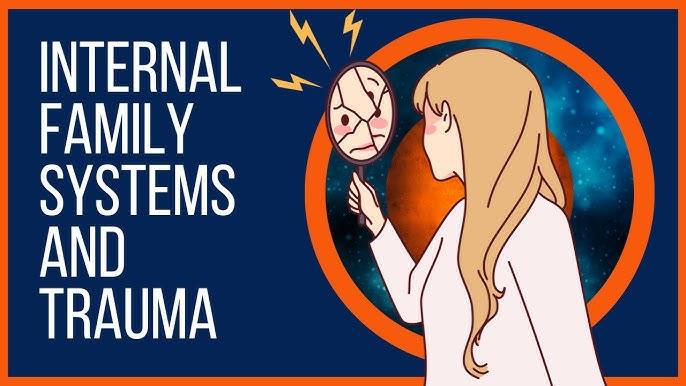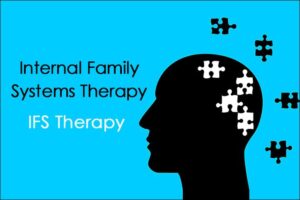Understanding IFS: A Gentle Path Toward Healing Deep Wounds
When I first encountered Internal Family Systems (IFS) years ago, I recognized something rare, which was about a method that treats the complexity of the human mind with tenderness and deep respect.
IFS therapy, developed by Dr. Richard Schwartz, shows us that we are not just one single self. Instead, we are made of subjective inner voices, our feelings and protection masks in the form of defenses each of which carry their stories in terms of good, bad, and ugly. I have seen IFS make a tremendous change towards trauma but not by simply erasing what did not go right in the client’s past life but by helping them relate differently to those painful parts of them too, so they have them all processed better moving forward.
Therefore, the journey of Healing does not apply any sort of force wherein you can simply walk past what happened to you but it helps understand how to respond to them more healthily.
How IFS Works? Meeting Every Part With Compassion
In IFS therapy, meeting every part of yours with compassion is highly essential. There are three main types of parts that trauma therapists stick to:
- EXILES carry the deepest wounds like shame, grief, terror, or loneliness.
- PROTECTORS work hard to keep those wounds hidden such as the controller, the perfectionist, the avoider, the critic.
- SELF is the calm, compassionate core inside you which paves a path in your true healing presence.
Hence, the work is about helping your Self connect with these parts, so that protectors can relax and exiles can finally be heard and healed. You are not broken, you are brave for surviving, and capable of leading yourself home.
What Healing Trauma Through IFS Looks Like?
- Witnessing Without Overwhelm
Unlike some trauma therapies that risk retraumatization, IFS goes slowly. Parts are approached gently and only with permission. Healing doesn’t mean reliving trauma, it means building a safe relationship with the pain so it can begin to soften. Hence, true healing happens at the pace your heart can hold.
- Befriending Protectors
Many trauma survivors feel ashamed of their coping strategies, whether it’s anger, drinking, shutting down, or perfectionism. IFS helps you see that these behaviors were never flaws. They were your system’s way of trying to survive.
By understanding and respecting your protectors, you shift from self-blame to deep self-compassion. When protectors trust that healing is safe, they allow you to reach the vulnerable parts they’ve been guarding for so long. Trauma therapists will help you to recognise that the parts you once judged are the ones that saved you.
- Unburdening Exiles
When an exile part, maybe a young, abandoned version of yourself, is finally seen and loved by yourself, the frozen burdens of shame, terror, and despair can begin to lift.
The exile doesn’t disappear. Instead, it no longer has to carry unbearable pain alone. Your whole inner system starts to reorganize around trust, connection, and choice. Hence, Trauma therapists do not wish to aid you in erasing your past, but to finally stop carrying it alone.
A Real Therapy Room Story: Finding Freedom Inside
I once worked with a female client, named ATK, who had survived emotional neglect in childhood. She carried a painful belief deep inside: ‘I’m invisible. I don’t matter.’ At first, her protectors were fierce, perfectionism, intellectualizing, emotional numbness. They weren’t ‘resistant.’ They were the army that had kept her alive.
Through IFS therapy, ATK learned to honor her protectors, to thank them, and to gently ask for permission to meet the exile they had been guarding for so long.
One day, during a quiet moment in therapy, ATK connected with a very young part of herself, all curled up, lonely, and desperate to be seen. Through tears, she spoke the words her younger self had been waiting for: ‘I see you. You matter. I’m here now.’ It wasn’t loud or dramatic. It was quiet. Sacred.
From that moment on, something shifted. Not overnight, but deeply. ATK began to live not from the wound, but from the Self that had found her way back to the parts that needed her. Therefore, Healing doesn’t always look loud, it often sounds like a whisper finally heard.
How Can IFS Heal Trauma When Other Methods Sometimes Cannot?
Trauma therapists recommend IFS therapy strongly as it works where other approaches sometimes struggle because it honors internal resistance, welcomes complexity, and taps into the natural healing capacity within every person.
- It doesn’t pathologize survival strategies.
- It doesn’t force painful catharsis.
- It doesn’t treat you like you’re broken.
Instead, it trusts that healing happens when every part, even the angry, ashamed, or terrified ones, is met with love, patience, and understanding. So, embracing Love and not force, is the true engine of lasting change.
An Overview: IFS and Healing Trauma
Is IFS effective for complex trauma (C-PTSD)?
Yes, IFS therapy particularly helps for complex trauma and CPTSD with cases of Intersectionality for instance who have been discriminated against on multiple fronts. It is a slow and gradual process that lets the clients see through themselves addressing their dissociations, internal battles they are fighting alone and to become aware of their established survival strategies. However, it is done very gently to not overwhelm the client all at once.
Do I need to remember all my trauma to heal through IFS?
No, You do not need to have full memories. Emotions, body sensations, and images are enough to guide the work. Healing focuses on the parts’ current experience, not on reconstructing history.
How long does healing take with IFS?
It varies for everyone. Some people feel shifts within months. Others, especially with complex trauma, find that healing unfolds over longer periods. The journey moves in layers, as protectors learn to trust and exiles are gently unburdened.
Can IFS be culminated with other therapies?
Absolutely. Many trauma therapists attempt to make this approach an eclectic one by combining several therapy modalities to make the recovery process more effective, worthwhile, and sustainable for the client. IFS can be combined with methods like EMDR, Somatic work, and psychodynamic approaches. IFS more or less builds the foundation to make sure the client’s internal sense of self does not shatter and the therapy modalities can help enhance this process of awareness and growth together.
What if I don’t feel a strong ‘Self’ yet?
That’s completely okay. Multiple survivors of trauma tend to start the process of therapy not feeling very connected to the whole idea of therapy itself to begin with. However, along the way, IFS helps them see the truth for themselves, not through demands but by getting rid of the blurs and cleaning the way with one day at a time. Therefore, this journey of healing is not about becoming someone completely new, but to begin to have a redemption to embrace and own who you have always been.
Why CoachForMind?
- We don’t merely address symptoms. We examine what’s really happening beneath the surface; past pain, trauma, or recurring patterns. You’ll collaborate with trained psychologists. Everyone here possesses the required qualifications and experience. You’ll engage with someone who listens and comprehends profoundly.
- Therapy is designed specifically for you.We don’t adhere to a rigid plan. We tailor the process based on your needs and current situation.
- We utilize various forms of therapy: Psychodynamic, IFS (Internal Family Systems), Somatic (body-oriented work), CBT and DBT and Narrative Therapy.
- It’s an environment to develop at your own rhythm.
You don’t need to feel prepared. We’ll navigate this journey together.
Visit www.coachformind.com to find a trauma therapist who walks with you, not ahead of you, on your healing journey.








